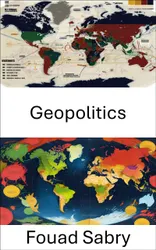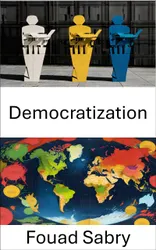Unlock the secrets behind global power dynamics with Power in International Relations, a crucial entry in the Political Science series. This book offers a comprehensive guide to understanding how power shapes international politics, influencing conflicts, diplomacy, and alliances worldwide.
Chapters Highlights:
1: Power (International Relations) - Introduces foundational concepts of power, setting the stage for deeper exploration.
2: Hegemony - Explores how dominant powers influence global norms and policies, shaping international order.
3: Superpower - Defines superpowers and examines their distinguishing roles in the global arena.
4: Superpower Collapse - Analyzes the factors behind the decline of superpowers and resulting shifts in global power.
5: International Relations - Provides context for understanding power dynamics by offering insights into the field's core theories.
6: Soft Power - Discusses non-coercive forms of power, such as cultural influence and diplomacy, and their impact on international relations.
7: Hyperpower - Explains the concept of hyperpower and its global implications, focusing on characteristics of unrivaled global leaders.
8: Foreign Policy - Investigates how nations formulate and implement foreign policies to advance their interests and maintain power.
9: Great Power - Examines the role of great powers in maintaining global stability and their influence on conflict.
10: Liberal International Order - Explores the liberal international order and its impact on global politics and power relations.
11: Middle Power - Analyzes the role of middle powers as intermediaries between major powers and smaller states.
12: Regional Power - Discusses how regional powers exert influence within specific geographic areas.
13: Balancing (International Relations) - Reviews strategies employed by states to counter dominant players and maintain stability.
14: Hegemonic Stability Theory - Explores the theory advocating the need for a hegemon to maintain global order and prevent conflict.
15: Polarity (International Relations) - Analyzes different forms of polarity in international relations, including unipolarity, bipolarity, and multipolarity.
16: Potential Superpower - Investigates emerging powers that could challenge existing superpowers and reshape global order.
17: Small Power - Examines strategies small powers use to navigate the international system and influence global politics.
18: The Next 100 Years: A Forecast for the 21st Century - Offers a forward-looking perspective on future global power dynamics.
19: List of Modern Great Powers - Reviews current great powers and their roles in shaping global politics.
20: Least of the Great Powers - Explores the influence of less prominent great powers on the global stage.
21: International Order - Concludes with an overview of the current international order and challenges to its stability.
Power in International Relations provides a thorough exploration of how power operates globally, making it an essential resource for professionals, students, and enthusiasts. The insights offered ensure a deep understanding of global power dynamics, far exceeding the book's cost.
























